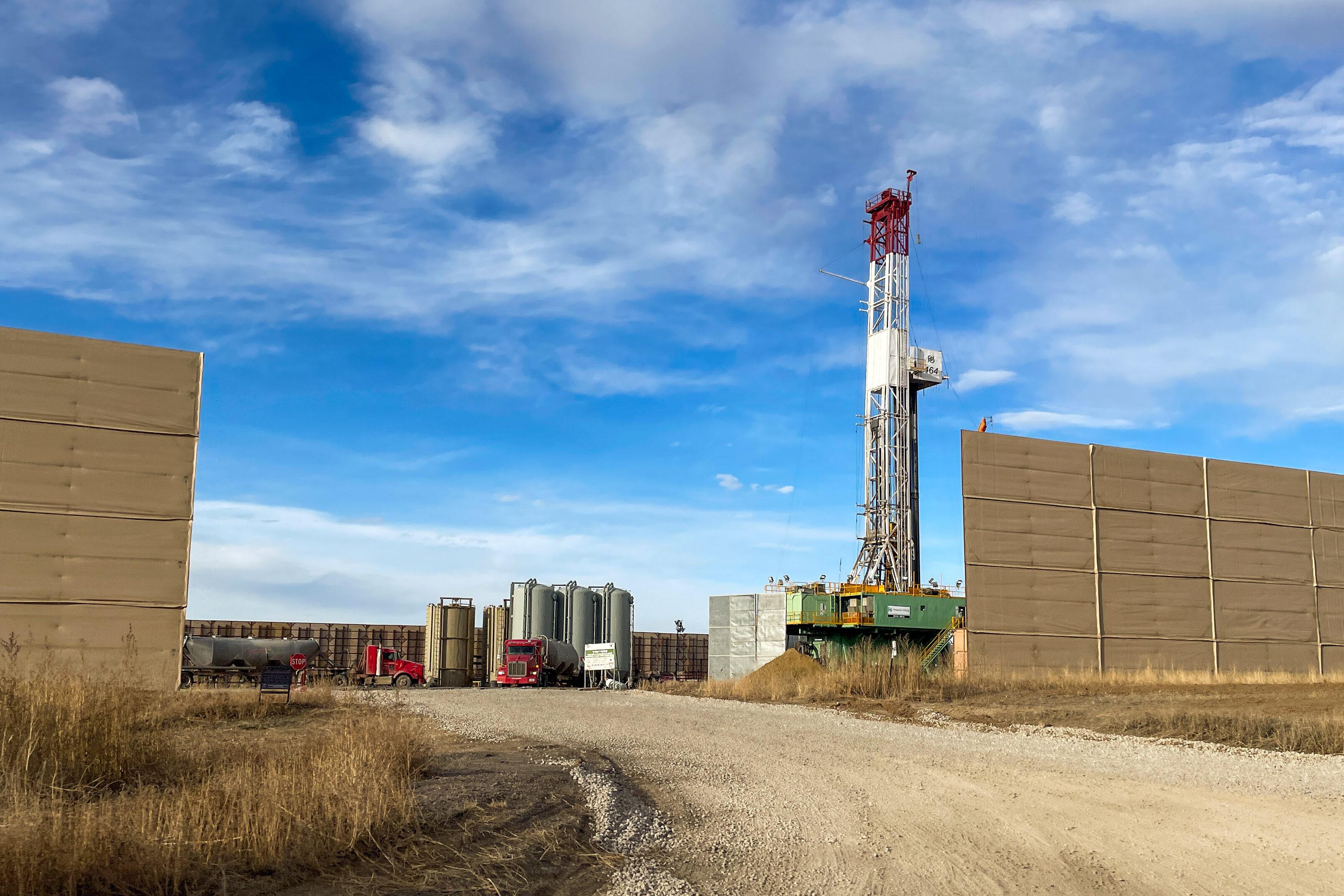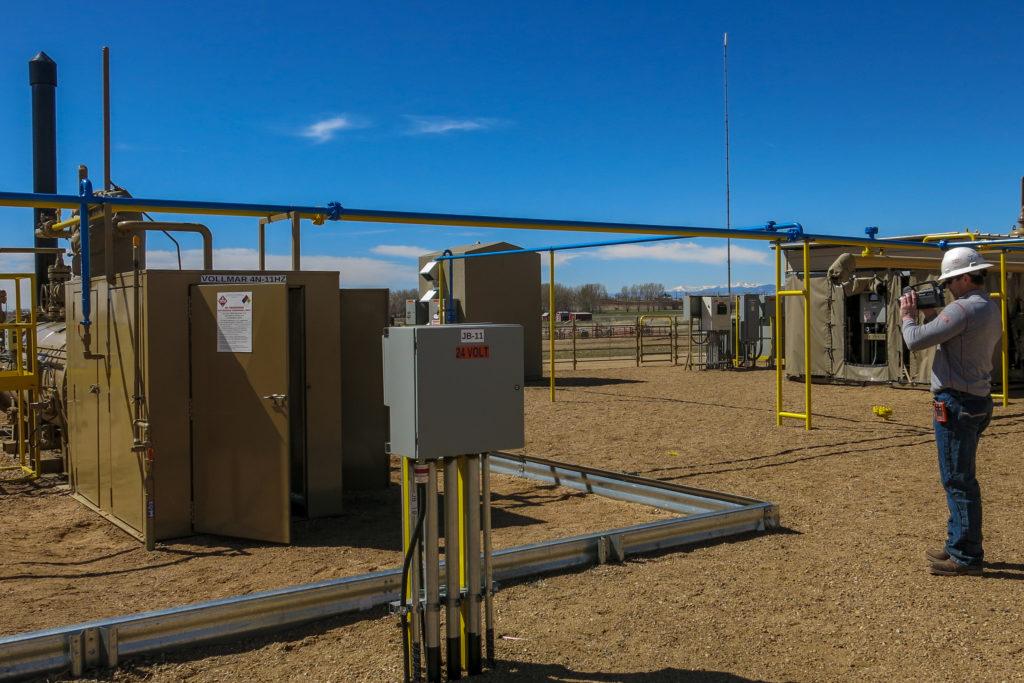
Over the last few months, Colorado’s oil and gas industry has mounted an all-out opposition campaign against a suite of legislative proposals backed by climate and air quality advocates. It has blanketed the airwaves with ads calling on lawmakers to kill the bills and held press conferences claiming the plans would wreck the state’s economy.
But the latest move from industry-aligned lawyers stumped many political observers.
On March 22, attorneys filed eight ballot proposals, including one draft initiative that would ask voters to approve the most controversial policy backed by environmentalists: a plan to phase out new drilling permits by 2030. Two other ballot proposals are copy-paste versions of the very air quality legislation the industry is trying to defeat.
So why would the industry take the first step to ask voters to approve the exact policies it vocally opposes? It’s a question some of their top opponents are struggling to figure out.
"We have no insight into what the oil and gas industry is doing with these measures,” said Jessica Goad, the vice president of Conservation Colorado, one of the state’s leading environmental groups. “They're either trying to game the system or have recognized the fact that we need to do more to reduce air pollution from oil and gas drilling."
It turns out Colorado oil and gas companies aren’t suddenly pushing for stricter air quality rules. The ballot blitz is another piece of the industry’s political strategy — one designed to provide public evidence that the legislative proposals are unconstitutional.
Mark Truax, the president and CEO of Pac/West Strategies, is leading ballot campaigns for Protect Colorado, a political action committee funded by Chevron Energy, Occidental Petroleum, and other major fossil fuel operators.
He confirmed the latest ballot proposals are meant to force Colorado election officials to consider whether the language violates the state’s single-subject rule. The constitutional provision requires every proposed statute or constitutional initiative to limit itself to a single purpose clearly described in its title.
“Besides threatening Colorado’s economy, we believe SB24-159, SB24-165, and HB24-1330 as introduced violate the single-subject requirement,” Truax told CPR News in an email.

The rule applies to both legislative and ballot proposals, but it’s not enforced the same way.
Every proposed ballot initiative is reviewed by the Colorado Title Board, which is comprised of the secretary of state, the attorney general, and the director of the Colorado Office of Legislative Legal Services, the non-partisan in-house council for the legislature. Each member usually appoints a delegate to sit on the board and vote on whether ballot initiatives meet the single-subject rule.
The legislature, in contrast, doesn’t use the rule to gatekeep proposals. While nonpartisan staff members might advise lawmakers on whether a proposal follows the constitutional provision, elected officials can run bills and determine their titles.
If a bill passes both chambers, the governor might issue a veto if they feel it violates the single-subject rule. If it’s signed into law, it can be challenged by a lawsuit and a court might then determine it is unconstitutional.
By copying the language of the proposed legislation it’s trying to defeat as a ballot measure, Colorado’s oil and gas industry may have found a potential shortcut. If the Title Board determines that the proposal's language doesn’t follow the single-subject rule, the governor may be less inclined to sign it, and a court might also be more inclined to invalidate the policy.
“They must be fairly confident they’ll win this argument in front of the Title Board,” said Curtis Hubbard, a political consultant with experience running ballot measures as the owner of OnSight Public Affairs. “In my way of thinking, it’s a sign that deep pockets don’t have limits around where they’ll go to fight legislation they oppose.”
The strategy is the latest example of conservative groups and business interests embracing the Colorado ballot.
Since 2018, Democrats have held every major statewide office and built substantial majorities in the legislature. The ballot box has since become a final political foothold for right-leaning opponents, which have used ballot initiatives to cut income taxes and require voter approval on certain fees.
The state’s oil and gas industry threatened to adopt the same strategy in 2020. It backed down from two proposed initiatives after Gov. Jared Polis negotiated a truce with some environmental groups, which agreed not to run any competing ballot initiatives in the 2020 or 2022 election cycles.
It’s now clear the deal has officially expired.
Protect Colorado is currently collecting signatures for a ballot proposal to ban state or local policies that limit access to a certain energy source. The plan comes as many communities have restricted hookups for gas stoves and furnaces in new buildings — an increasingly popular approach to avoid future climate-warming emissions.
Environmental groups responded with their own trio of ballot initiatives last week. One ballot proposal would ask voters to establish a right to a healthy environment in Colorado. The other two would make it easier for residents to successfully sue oil and gas operators in the event of a spill or an air pollution incident.
The environmental coalition behind the ballot package has indicated it's open to negotiations to remove the proposed initiatives, but industry-aligned groups answered with its latest round of ballot initiatives the next day.
Along with the initiatives copying Democratic-led legislation, attorneys with ties to Protect Colorado filed five additional proposals on March 22. One plan requires a statewide vote on any legislation projected to cut the state’s gross domestic product by $100,000,000 over five years. Another would bar the state from approving any regulations to limit ozone-causing pollution from the oil and gas industry beyond new targets approved by air quality regulators last year.
Advance Colorado, a conservative group that’s previously supported tax reform ballot initiatives, has also entered the fray. On the same day, its attorneys filed another version of the industry’s plan to protect gas stoves with one key difference: it would cement the limits into the state constitution instead of state statute, putting it outside the reach of lawmakers.
“There has been a growing push to ban everyday appliances like gas stoves and lawnmowers. We want Coloradans to be able to choose to continue to use products that are in common use,” said Michael Fields, who runs Advance Colorado. “Ultimately, we believe the voters will agree with us”
- A lobbying frenzy builds around air pollution legislation focused on reducing summer smog
- Why a new air quality bill is the latest in rift between Gov. Polis and environmental justice groups
- Colorado’s fossil fuel phase-out is likely to fail without big changes, but supporters still hope it sends a message









